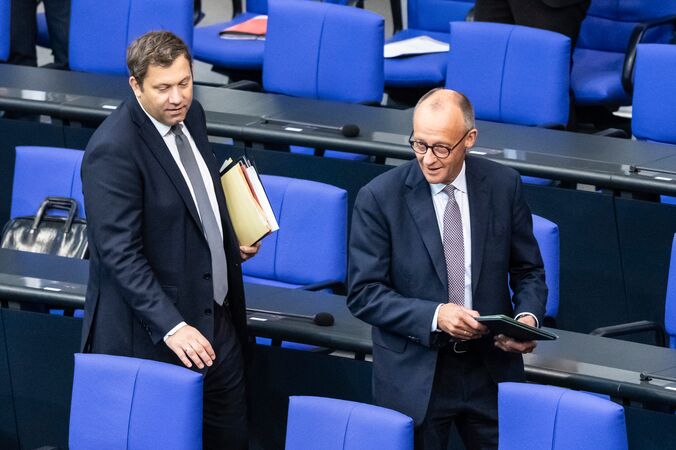German government and steel industry agree on roadmap for competitiveness
by David Fleschen

At a high-level Steel Dialogue held at the Federal Chancellery, German Chancellor Friedrich Merz met with leading representatives of the steel industry, trade unions, state premiers, and federal ministers to discuss how to strengthen Germany’s steel sector amid what the Chancellor described as an “existential crisis.”
The discussions focused on three main areas: ensuring the global competitiveness of German steel, addressing unfair trade practices and overcapacity, and accelerating the transition to low-carbon production. Participants agreed that safeguarding industrial value creation, employment, and climate-neutral transformation are closely linked goals. “We need a genuine steel strategy that creates competitive conditions for the industry,” said Chancellor Friedrich Merz. “Our aim is not merely to preserve steelmaking in Germany, but to position it for future success — because only competitive companies can secure productivity and jobs in the long term.”
Lower energy costs and fair trade
Federal Finance Minister Lars Klingbeil emphasized that the government’s top priority is to preserve industrial jobs and sites in Germany. “We must bring down energy costs and improve competitiveness,” he said. “Germany and Europe need to respond decisively to global overcapacity and dumping prices. We want to prioritize climate-friendly, high-quality steel made in Germany and Europe — especially in infrastructure, defence, and automotive applications.”
Klingbeil also called for an end to exemptions that currently allow imports of semi-finished steel from Russia, and reiterated the government’s demand for a strong European response to unfair trade flows, particularly those redirected from Asian markets following new U.S. tariffs.
Toward a stronger EU trade defence framework
Participants welcomed the European Commission’s proposal of October 7, 2025, to replace existing safeguard measures with a more robust system, including tighter import quotas, higher tariffs on over-quota imports, and a “melt and pour” rule for origin verification. The German government voiced strong support for a WTO-compliant follow-up regime to the current safeguards expiring in June 2026.
Berlin also reaffirmed its backing for EU-U.S. negotiations on removing U.S. Section 232 tariffs on European steel and aluminium, while insisting on continued enforcement against sanctions evasion and circumvention.
Energy relief and hydrogen supply
The government confirmed further measures to reduce industrial energy costs, including the abolition of gas storage levies, lower electricity taxes, and reduced grid fees worth €6.5 billion in 2026. Additional relief will come through expanded power-price compensation and a new industrial electricity price for energy-intensive sectors such as steel.
To accelerate the green transition, the government reiterated its commitment to hydrogen-based steelmaking, promising pragmatic support for the hydrogen economy and faster expansion of Germany’s hydrogen core network. The use of transitional natural gas in hydrogen-ready direct reduction plants will remain possible during the ramp-up phase.
Promoting innovation and circularity
Funding for industrial decarbonization will continue through the Federal Industrial Climate Action Programme (BIK), carbon contracts for difference, and IPCEI hydrogen projects. All support will be tied to clear commitments on site security and employment.
The dialogue also underlined the potential of the circular economy for steel recycling and scrap supply. The federal government pledged to ensure secure access to steel scrap within the EU and to integrate recycling into its upcoming National Circular Economy Strategy.
Developing European lead markets for green steel
Germany will advocate for European lead markets for climate-friendly steel under the EU’s Industrial Accelerator Act, beginning with public infrastructure and transport projects. The government also supports the creation of the Low Emission Steel Standard (LESS) label to promote transparent, low-bureaucracy certification of green steel.
Chancellor Merz concluded by emphasizing that steel remains a strategic foundation of industrial resilience: “Germany and Europe must not depend on imports for critical materials. Steelmaking is essential to our economic sovereignty — and it will remain a pillar of our industrial strength.”
Source and Photo: German Government

